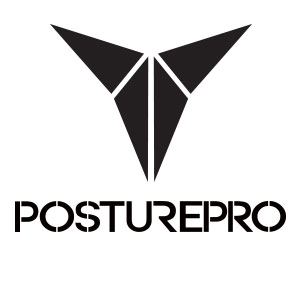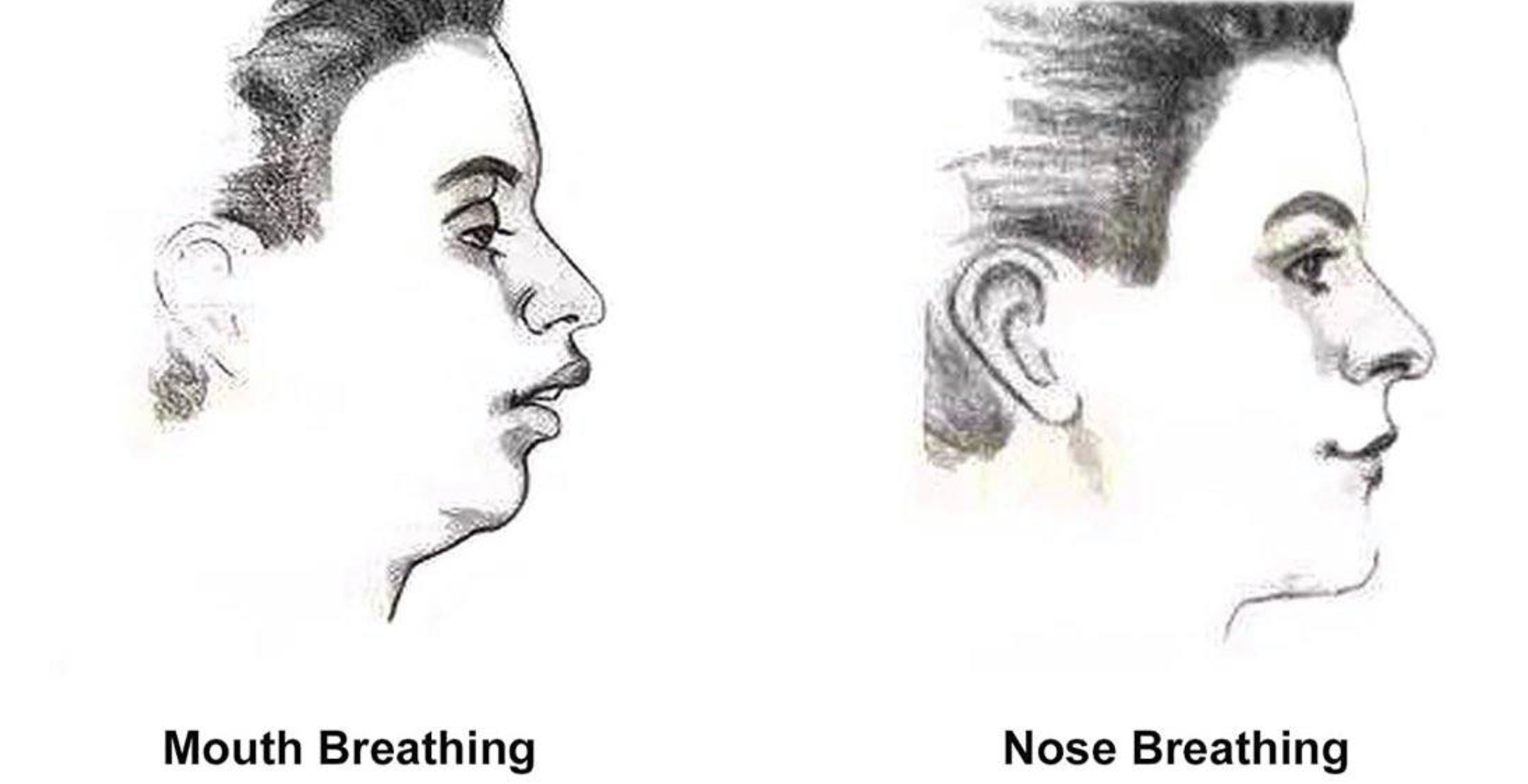
Breathing is a key ingredient to human function and global health. It’s a human reflex we’re born with, and it is directly attached to our nervous system.
What causes mouth breathing?
Improper development of the stomatognathic system.
We breathe a total of 18,000 times per day and by the age of twelve, we will have taken close to 80 million breaths.
When breathing through your mouth, the stomatognathic system becomes unbalanced, which causes the deformation of the upper jaw (maxillary), creating a “V-shaped” arch as opposed to a correct “U-shaped” arch.
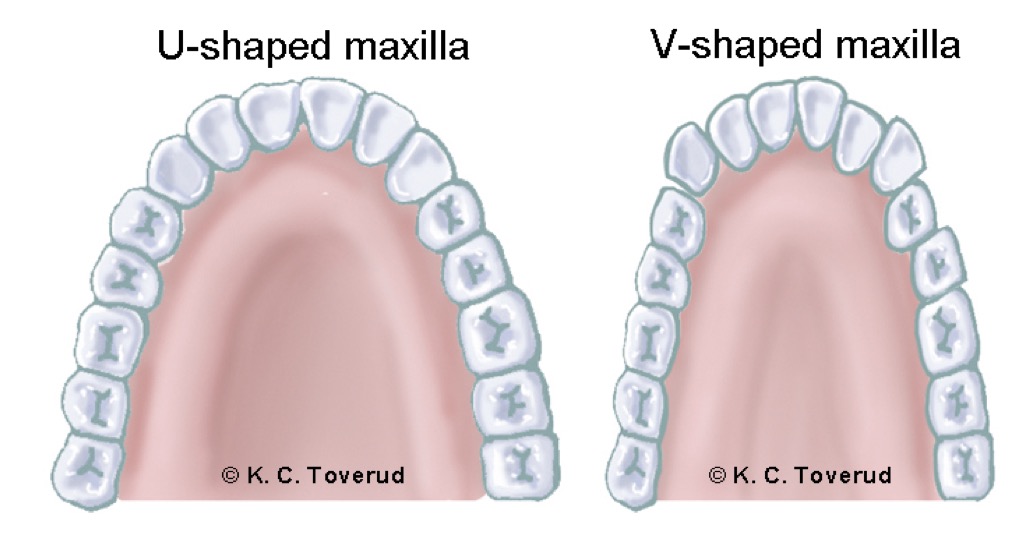
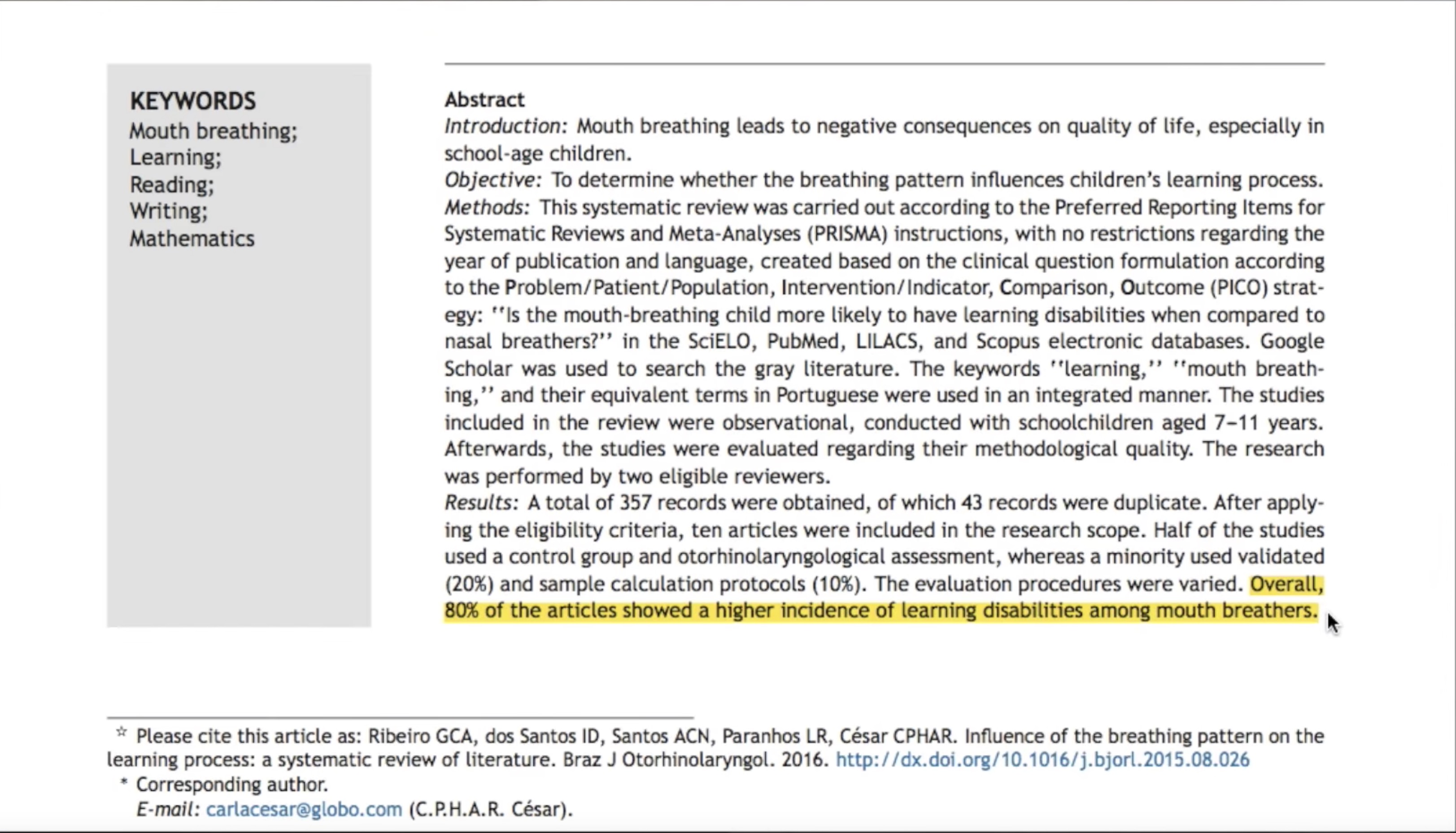
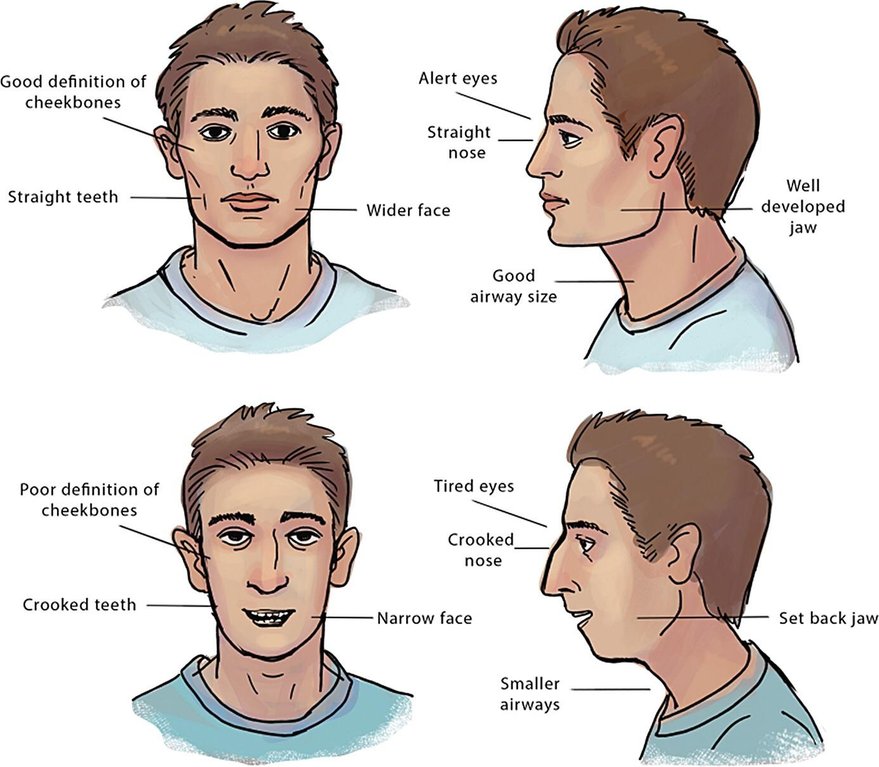
–> Changes Fascial Growth
The vast majority of health care professionals are unaware of the negative impact of upper airway obstruction (mouth breathing) on normal facial growth and physiologic health.
Children whose mouth breathing is untreated may develop long, narrow faces, narrow mouths, high palatal vaults, dental malocclusion, gummy smiles, and many other unattractive facial features, such as skeletal Class II or Class III facial profiles.
–> Affects Your Quality of Sleep
In children, interrupted breathing during sleep can have severe effects on brain growth. Their brain needs uninterrupted periods of oxygen-rich sleep to rest and regenerate. Oxygen deprivation damages this process. Sleep apnea in children is known to increase risk of hyperactivity, ADHD, tiredness, and poor concentration.
The warning signs of mouth breathing show up in the first months of life. Making sure a child breathes the right way is one of the best ways to ensure their brain, jaw and teeth develop properly. It could be all that’s required to prevent your child needing braces.
What to do if you’re a mouth breather?
You must change your breathing habits.
This can be done with daily tongue exercises, but the process can be long and gruesome.
In addition to this, a Functional Activator is a great tool that can be used to improve neck posture through tongue positioning.
Jaw And Body Connection

JAW AND BODY CONNECTION
- Gain an understanding of the full spectrum of how the jaw affects the whole body
- In-depth graphically annotated infographic and tutorials
- Access to our private member’s forum
- A listing on our find a trainer page (upon certification)
- All future modules and content updates, at no extra cost
- PDFs (worksheets, templates, case studies, and more)

